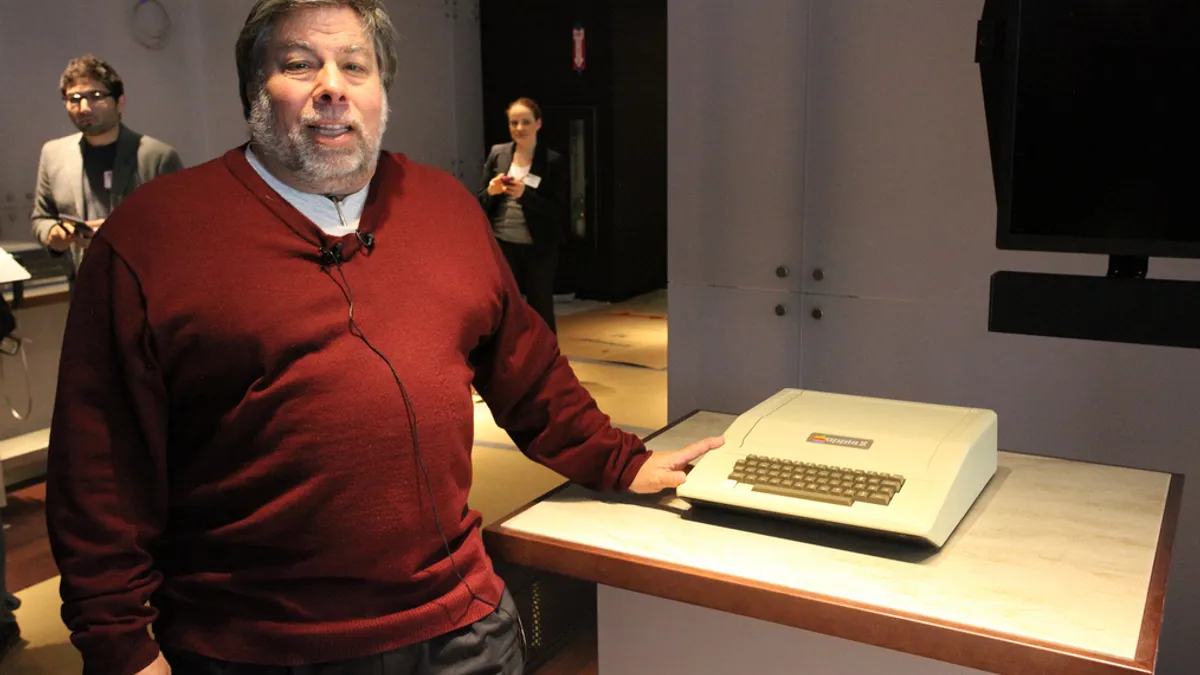Dive Brief:
- Some former students and employees of Woz U, the year-old online tech education program established by Apple co-founder Steve Wozniak, have complained of significant flaws in the computer coding training platform, CBS News reported.
- Students complained of faulty, missing and out-of-date information in coursework and a lack of instructors for the 33-week program, which costs $13,200. CBS quoted one former sales employee who said there was excessive pressure to register students, noting he was laid off when his enrollment numbers declined.
- Woz U President Chris Coleman said in a statement that the company was fixing errors in the material and establishing more quality controls, but he denied students were pressured to sign up.
Dive Insight:
Woz U is part of a growing number of independent efforts to offer postsecondary training in fields that lack a strong workforce development pipeline. Some companies are operating their own or connecting with third-party training programs, while others such as Apple, Google, Facebook and FedEx are partnering with colleges and universities.
Challenges faced by the first generation of tech "bootcamps" and other for-profit training companies — some of which led to closures — spurred later entrants to the sector to partner with institutions for help developing curriculum and due to the strength of their brands. For-profit education providers such as 2U are also working with colleges on online programs and leasing space to add a brick-and-mortar element of the education experience.
Programs such as those provided by Woz U are attracting attention among potential students and policymakers alike for the flexibility they provide nontraditional learners as well as their focus on developing in-demand skills for emerging fields, Inside Higher Ed reported. But their relatively high cost (thousands of dollars for a few months of coursework) and a prevailing view among the industries they serve that they are supplemental to a bachelor's or associate degree, not a replacement, could limit their reach.
Efforts to make programs offered by third-party providers eligible for federal student aid have struggled, according to Inside Higher Ed, which notes that so far just one of the eight partnerships between colleges and those providers selected in 2016 as part of the U.S. Department of Education's pilot Education Quality Through Innovative Partnerships (EQUIP) initiative has been launched and three have dropped out.













